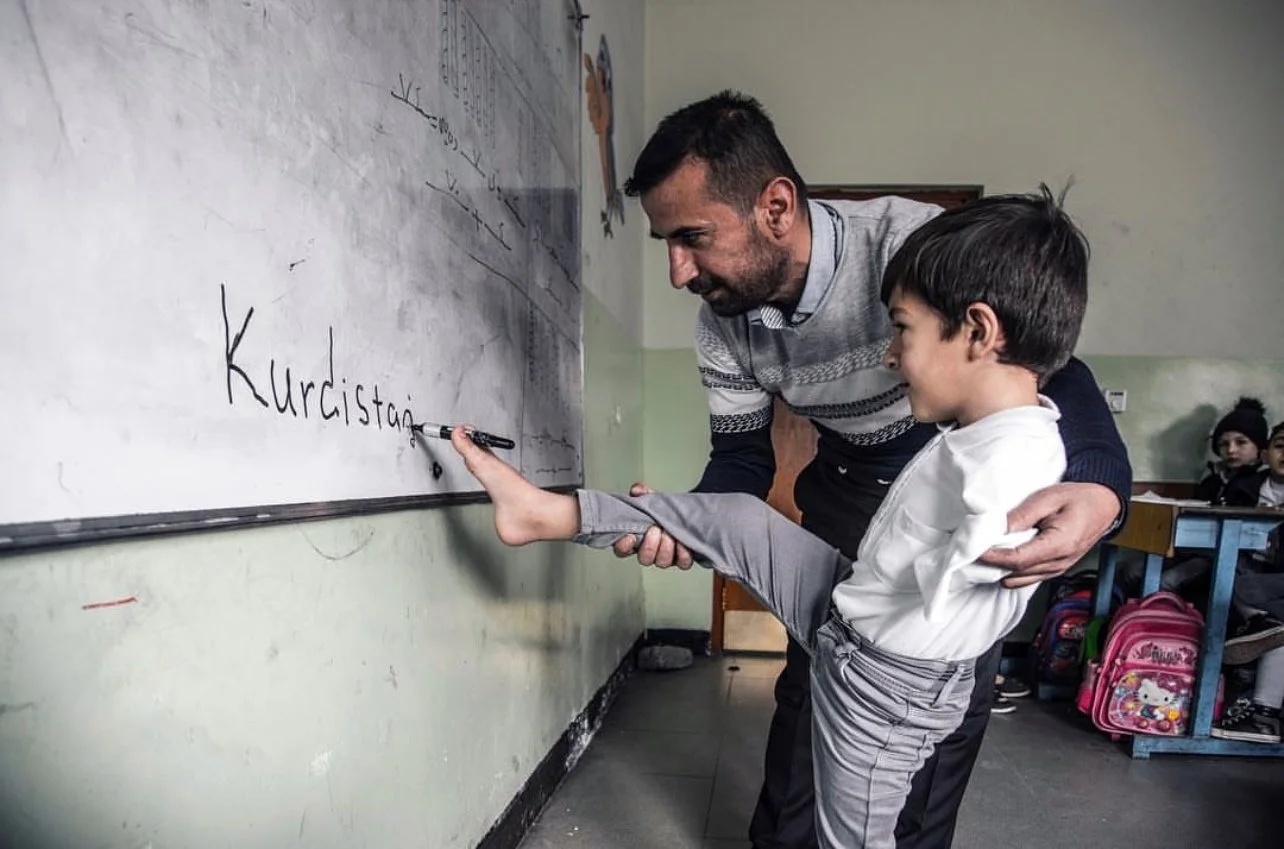Announcing “One year since the quake: Linguicide and resilience of the Kurdish language”
Photo by Rebaz Majeed
The ground is no longer shaking, but the Kurdish language remains at risk.
چیتر زەوی نالەرزێ، بەڵام زمانی کوردی لە مەترسیدا ماوەتەوە
Êdî erd naheje, lê zimanê kurdî di bin xeterê de ye.
February 6 marks the one-year anniversary of the Turkey-Syria earthquake that killed more than 59,000 people, one of the region’s largest natural disasters in history.
The earthquake disproportionately devastated Kurdish areas; meanwhile, disaster response was discriminatory toward ethnic minorities, especially Kurds.
However, until now, no one has investigated how anti-Kurdish language violence specifically contributed to the disaster.
On the one-year anniversary of the quake, Respond is proud to release our report, “One year since the quake: Linguicide and resilience of the Kurdish language.”
This six-month oral history project collects testimony from Kurdish speakers across Kurdistan and the diaspora. It shows that resources following the quake were largely not translated into Kurdish, which made relief efforts inaccessible to huge swaths of communities most impacted.
“[There] were a lot of elderly people crying out for help in their dialects (Kurmanji) but no one could understand or communicate with them even if there were so many NGOs to get them rescued. There was still a huge barrier between them” – Dilan, a Sorani speaker from Bashur (name changed to protect privacy)
Our research also shows that this instance of anti-Kurdish language violence only builds on decades of linguicide by states throughout Kurdistan – and it continues with state aggression against Kurdish areas today.
“This language is my language. As someone whose language has been restricted, banned, prohibited, and many people went to jail and got punished for speaking or writing in, for publishing in it – yeah, definitely, I feel a personal connection to the concept of language violence.” – Berivan, Sorani speaker in Bashur (name changed to protect privacy)
This project, led by Respond’s Kurdish Language Team Lead Raman Salah, is among the only of its kind; in highlighting not only the role language violence played in the earthquake, but also the history of suppression and resilience of Kurdish-speaking communities.
The timeliness of our efforts to collect this testimony cannot be understated. The Kurdish language continues to be at risk through de jure and de facto state policies that aim to suppress ethnic and linguistic rights and via incessant attacks on Kurdish homelands. As we write publish this project, Kurdistan continues to suffer the consequences of anti-Kurdish policy. Just weeks ago, in early January of 2024, the governments of the Islamic Republic of Iran and Turkey bombed Bashur and Rojava, claiming, among many lives, the life of an 11-month-old infant named Jîna (meaning life in Kurdish) Peshraw Dizayee. Tragedies such as these are just one of many ways Kurdish peoples are suppressed through systems of discrimination and suppression described throughout this compendium of lived experiences – systems that threaten not only the linguistic diversity of the region, but the very soul of Kurdish identity itself.
Please help Respond in sharing Raman’s groundbreaking work widely. Visit the project page on our website, as well as read our posts about the project on Instagram, Twitter/X, and Facebook.

